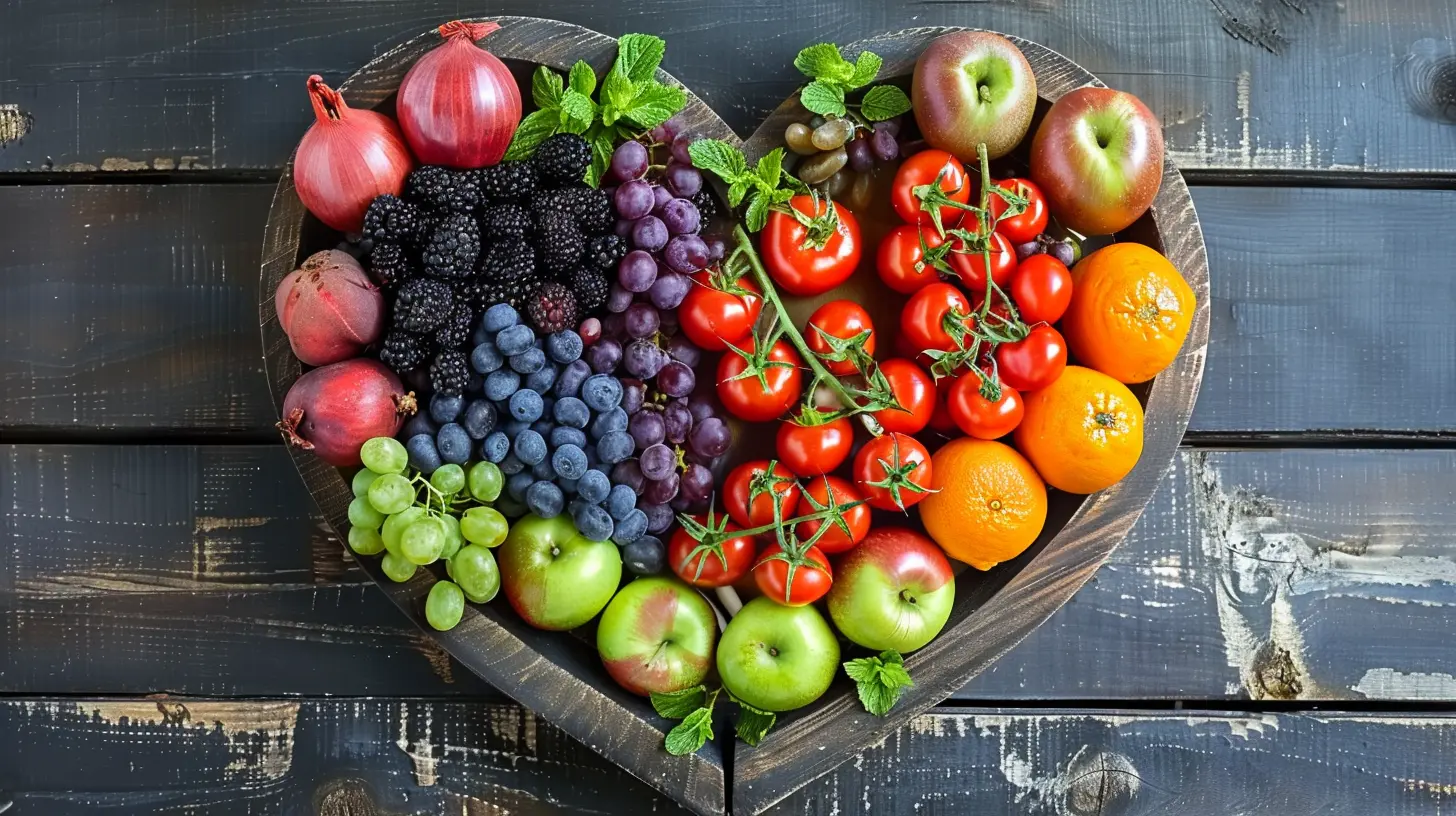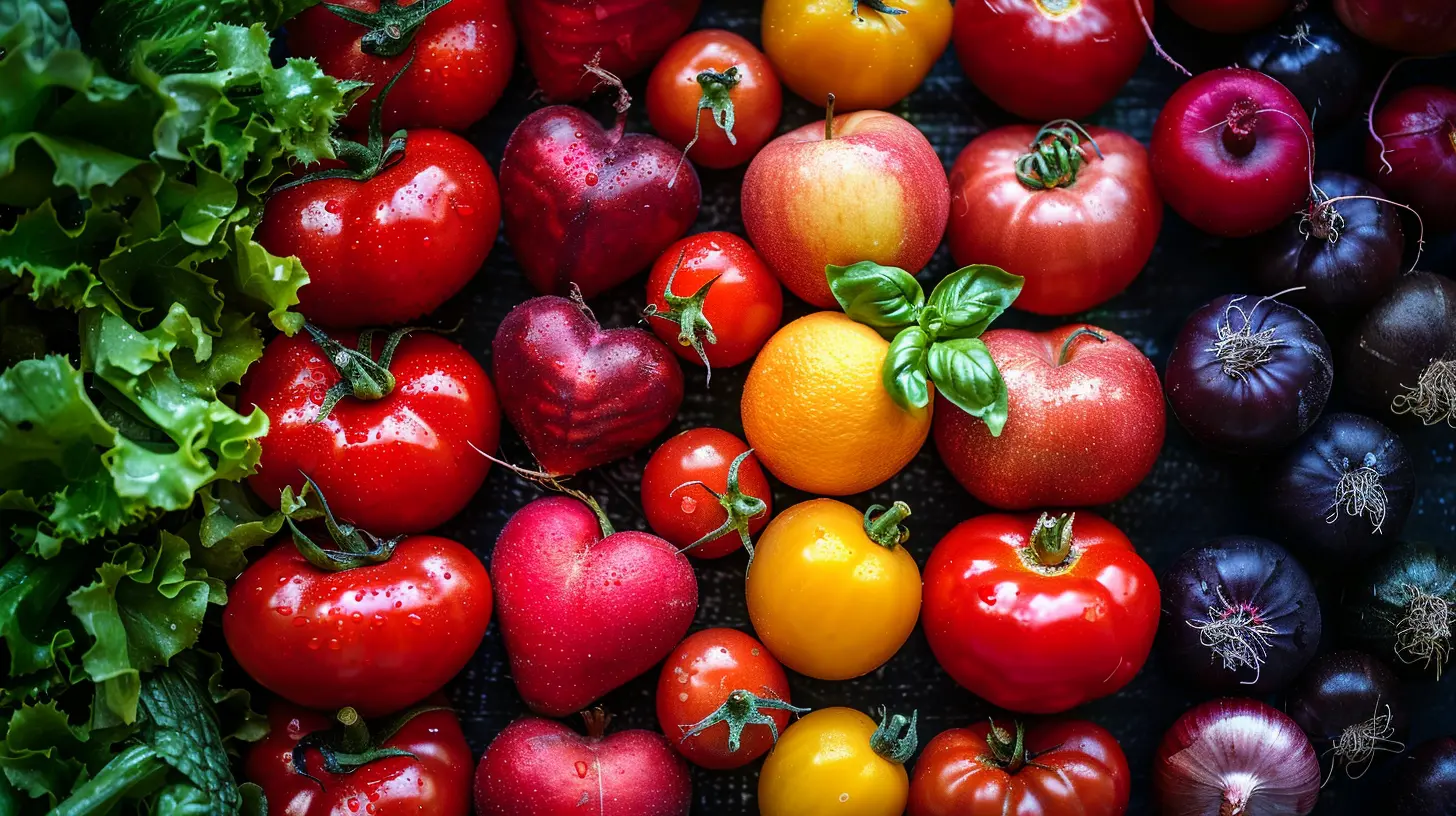Organic Foods and Heart Health: What Research Says
26 May 2025
When it comes to heart health, what we put on our plates plays a crucial role. Over the years, organic foods have gained popularity, with many people believing they are the healthier choice. But do organic foods actually contribute to better heart health? Or is it just clever marketing?
Let’s break it down—what does research say about organic foods and heart health, and should you make the switch if you're aiming for a stronger heart? 
What Are Organic Foods?
Before we dig into the heart health benefits, let’s clarify what "organic" really means. Organic foods are grown without synthetic pesticides, herbicides, or genetically modified organisms (GMOs). Organic livestock is raised without antibiotics or synthetic hormones and fed organic feed.In short, organic foods are produced as naturally as possible, without artificial chemicals interfering with their growth. Sounds great, right? But how does this impact your heart? 
The Link Between Organic Foods and Heart Health
Research has shown that diet plays a key role in heart health. Poor dietary choices contribute to high cholesterol, hypertension, inflammation, and increased risk of heart disease. Organic foods may offer some benefits in reducing these risks.Let’s break down the evidence:
1. Lower Pesticide Exposure and Heart Health
One of the main selling points of organic food is that it's grown without synthetic pesticides. But why does this matter for your heart?Studies suggest that exposure to pesticides can lead to cardiovascular problems, including increased blood pressure, inflammation, and oxidative stress, all of which are linked to heart disease. A 2019 study published in the JAMA Internal Medicine journal found that individuals who consumed more organic food had a lower risk of developing heart disease over time.
By choosing organic, you're reducing your exposure to these harmful chemicals, potentially lowering your risk of heart-related complications.
2. Higher Antioxidant Levels in Organic Produce
Fruits and vegetables are already loaded with heart-friendly antioxidants. But did you know that organic produce may contain even more of these protective compounds?A meta-analysis published in the British Journal of Nutrition found that organic fruits and vegetables have significantly higher levels of antioxidants compared to conventionally grown produce. Antioxidants help reduce oxidative stress in the body, which plays a major role in preventing heart disease.
So, if you’re aiming to improve your heart health, organic produce may give you a little extra boost in fighting off damage caused by free radicals.
3. Healthier Fats in Organic Animal Products
Organic dairy, eggs, and meat aren't just free from antibiotics and hormones—they also contain healthier fats that support heart health.Research has found that organic dairy and meat have higher levels of omega-3 fatty acids, which are essential for reducing inflammation and maintaining heart function. Omega-3s have been linked to lower blood pressure, reduced triglyceride levels, and decreased risk of heart attacks.
A study published in 2016 in The British Journal of Nutrition found that organic milk and meat contain 50% more omega-3 fatty acids than their conventional counterparts. Since omega-3s are crucial for heart health, choosing organic animal products could be a smart move.
4. Reduced Risk of Antibiotic Resistance
Conventional livestock farming often relies on antibiotics to promote growth and prevent disease. Over time, this has contributed to the rise of antibiotic-resistant bacteria, which can make infections harder to treat.Why does this matter for your heart?
Well, antibiotic resistance has been linked to increased inflammation and weakened immune response, both of which can strain your cardiovascular system. By choosing organic meat and dairy, you're avoiding unnecessary antibiotic exposure and reducing the potential health risks associated with antibiotic resistance.
5. No Artificial Additives or Preservatives
Processed foods—with their artificial preservatives, additives, and unhealthy trans fats—are one of the biggest contributors to heart disease. While not all organic foods are unprocessed, organic regulations prohibit the use of many artificial additives found in conventional processed foods.By opting for a diet rich in whole, organic foods, you're automatically reducing your intake of harmful chemicals that could negatively impact your heart health. 
Are There Any Downsides to Organic Foods?
While organic foods have several heart health benefits, it’s important to consider a few potential drawbacks:1. Higher Cost
Let’s be real—organic food can be expensive. If you're on a budget, switching entirely to organic may not be practical. However, prioritizing organic options for the most pesticide-heavy foods (like berries, spinach, and apples) can still provide benefits.2. Limited Access
Organic foods may not always be readily available, especially in food deserts or certain rural areas. In such cases, focusing on a diet rich in whole foods—organic or not—should be the priority.3. No Automatic Health Guarantee
Just because something is labeled "organic" doesn’t mean it’s automatically healthy. Organic cookies, chips, and sugary snacks are still processed foods and won’t do your heart any favors. The key is to focus on whole, unprocessed organic foods whenever possible.
How to Transition to a More Heart-Healthy Organic Diet
If you're thinking about making the switch, here are some simple ways to include more organic foods in your diet without breaking the bank:- Prioritize organic versions of high-risk foods. The Environmental Working Group (EWG) releases an annual "Dirty Dozen" list of the most pesticide-contaminated produce. Focusing on organic options for these foods can reduce pesticide exposure without drastically increasing costs.
- Buy in bulk. Purchasing organic grains, nuts, and legumes in bulk can save you money in the long run.
- Shop seasonal and local. Organic produce in season is often cheaper and fresher. Farmers' markets and local co-ops can be great sources of affordable organic food.
- Grow your own. Even if it’s just a few herbs or vegetables in your backyard, growing your own organic produce can be both rewarding and cost-effective.
- Limit processed organic foods. Just because it’s labeled “organic” doesn’t mean it’s automatically heart-healthy. Stick to whole foods for the best benefits.
Final Thoughts
So, does eating organic really improve heart health? Research suggests that it can. The lower pesticide exposure, higher antioxidant levels, healthier fats, and absence of harmful additives all contribute to a heart-friendly diet.However, organic foods are not a magic bullet—what matters most is maintaining a balanced diet rich in whole, nutrient-dense foods while minimizing processed junk. Whether organic or conventional, filling your plate with fruits, vegetables, whole grains, lean proteins, and healthy fats is the real key to a healthy heart.
At the end of the day, the best diet is one you can maintain. If you can afford to go organic, great! If not, don’t stress—eating a wholesome, balanced diet is far more important than chasing an organic label.
all images in this post were generated using AI tools
Category:
Organic FoodsAuthor:

Tiffany Foster
Discussion
rate this article
3 comments
Marni Clarke
Great read! It's amazing how our food choices impact heart health. I love exploring organic options—every little step counts! Thanks for breaking down the research in such an approachable way!
May 29, 2025 at 2:48 PM

Tiffany Foster
Thank you for your thoughtful comment! I'm glad you found the article helpful and appreciate your commitment to making healthy food choices. Every step truly does make a difference!
Storm Vasquez
Choosing organic foods can nourish your heart and enhance well-being—small changes lead to big impacts!
May 27, 2025 at 4:24 AM

Tiffany Foster
Thank you for your comment! Indeed, choosing organic foods can contribute to heart health and overall well-being. Small changes in our diet can make a significant difference over time.
Rocco Acevedo
Absolutely loved this article! It's wonderful to see how organic foods can boost our heart health. Eating well truly brings joy to life! Let's embrace these delicious options for a happier, healthier heart. Keep shining! 🌱❤️
May 26, 2025 at 3:58 PM

Tiffany Foster
Thank you for your kind words! I'm thrilled to hear you enjoyed the article and appreciate your support for organic foods and heart health! 🌿❤️



